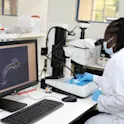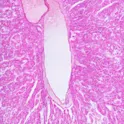
Health
14 Oct 2021
Many undocumented health problems discovered among those exposed to bushfire smoke
Many undocumented health problems discovered among those exposed to bushfire smoke, finds new study in Frontiers in Public Health

Health
14 Oct 2021
Many undocumented health problems discovered among those exposed to bushfire smoke, finds new study in Frontiers in Public Health

Health
11 Oct 2021
By Mischa Dijkstra, Frontiers science writer Image credit: Richard L. Bowman / Shutterstock.com A new study is the first to compare breast milk between mothers from the older order Mennonite community who live on traditional farms versus urban women. Communities such as old order Mennonites are known to have a low prevalence of atopic diseases associated with allergies, presumably due to environmental and lifestyle factors. The results show that breast milk from Mennonite mothers is richer in neutral or beneficial bacteria, certain cytokines and fatty acids, and IgA antibodies important for defense against bacteria. Their milk may give babies a better protection against allergens in infancy and later in life. Atopic diseases, which include eczema, allergic rhinitis, asthma, and food allergy, are caused by an innate or acquired allergy to airborne particles, such as pollen, dust, mold, or animal dander, or to foodstuffs like peanut, milk, soy, shellfish, or wheat. Until the early 20th century, allergy was thought to be a rare disease. But since in the 1920s to 1930s and especially since the second half of the 20th century, the prevalence of allergies has exploded in Western societies. For example, the European Academy of Allergy and Clinical Immunology estimates […]

Health
01 Oct 2021
Image: BlurryMe/Shutterstock.com In honor of the international day of Older Persons (October 1st) we spoke to the first onboarded Specialty Chief Editor of Frontiers in Aging, Dr. Morten Scheibye-Knudsen, and the most recently joining Specialty Chief Editor Dr. Richard Siow. Given Frontiers in Aging’s 1st Year anniversary we look forward to the future of the field of aging research, and its goals. Dr. Morten Scheibye-Knudsen is the Specialty Chief Editor of the Interventions in Aging section, within Frontiers in Aging, and Associate Professor of DNA damage and interventions in aging, at the University of Copenhagen, Denmark. With the mission “to discover interventions leading to healthier, happier and more productive lives“, the Scheibye-Knudsen Lab is working on understanding the impact of DNA damage on a cellular and organismal level. This can then lead to the development of interventions to improve, not only our lifespan but importantly our health-span, towards a future of healthy aging. Dr. Richard Siow is the Specialty Chief Editor of the newly launched Nutrition in Aging and Healthy Longevity section within Frontiers in Aging, and the Director of Aging Research at King’s (ARK), King’s College London, United Kingdom. Dr. Siow graduated in Nutrition and his research over the past 20 years has focused on cardiovascular aging and better understanding the role of diet and nutrigenomics on molecular pathways in aging and healthy longevity. The mission of ARK is to increase knowledge of aging mechanisms in collaboration with international academic and industry partners, allowing a multi-disciplinary understanding to be built around the many aspects of human aging and healthy physical, mental and financial longevity, ranging from cellular mechanisms […]

Health
30 Sep 2021
By Conn Hastings, science writer A town in the Ecuadorian Andes mountains. Image: ireneuke/Shutterstock.com Researchers in Ecuador are the first to investigate the risk of stroke-related death and hospitalization in people living at four different altitude ranges. They found that those living at higher altitudes have a reduced risk of death or hospitalization because of a stroke, and tend to experience strokes at a greater age. This protective effect was greatest between 2,500 and 3,500 meters. Could living at high altitudes affect your chance of suffering a stroke? This intriguing question is at the heart of a new study in open-access journal Frontiers in Physiology. The study is the first to examine the incidence of stroke-related hospitalization and death in people living at four different elevations in Ecuador, and includes data gathered over 17 years on more than 100,000 stroke patients. Strikingly, the study finds that people living at higher altitudes have a lower risk of stroke and stroke-related death, and that this protective effect is strongest at between 2,000 and 3,500 meters. ► Read original article► Download original article (pdf) Having the right altitude Stroke is a leading cause of death and disability worldwide. A stroke typically occurs because of a […]

Health
21 Aug 2021
By K.E.D. Coan, science writer Alexandros Michailidis / Shutterstock.com During the first wave of the pandemic, the European Union’s COVID-19 response highlighted ongoing limitations of the agencies put in place to prepare for such health crises, shows a recent study. According to a panel of health experts, national interests conflicted with coordinated Europe-wide health regulations. To prepare for the future, the panel recommends better funding and empowerment of these institutions. A new study in Frontiers in Public Health presents a review of expert opinions on the achievements and shortcomings of the European Union’s (EU) COVID-19 response. The aim: to draw lessons for future pandemics. In 2004, the EU created the European Centre for Disease Prevention and Control (ECDC), precisely with the goal of coordinating cross-border disease surveillance and guidelines. However, the interviewed public health experts largely agreed that, although there were some successes, individual countries’ interests often superseded EU-wide responses. “The EU’s Joint Procurement Mechanism was recognized as a great achievement and a valid instrument for crisis management,” says lead author Marie Gontariuk, of Maastricht University in the Netherlands. “But experts also agreed that further improvement was possible specifically regarding the timeliness and efficacy.” “During the current pandemic specifically, the […]

Health
20 Aug 2021
By Suzanna Burgelman/ PhD student and fellow Trizah Koyi Milugo, ICIPE PhD student and fellow Trizah Koyi Milugo. Image: Trizah Koyi Milugo A preventable disease, malaria still threatens millions of people around the world. World Mosquito Day raises awareness about malaria and its transmission via mosquitos. Researchers such as PhD student Trizah Koyi Milugo focus their research on malaria control and prevention and, in her case, is researching the development of a novel tool for controlling malaria transmission. In 2019, 229m clinical cases of malaria occurred and 409,000 people died of the disease, most of them children in Africa. The disease is found in more than 100 countries worldwide, but roughly 70% of the world’s malaria burden is concentrated in Africa and India. Humans get infected with the malaria virus through mosquito bites. Other than malaria, mosquitos carry an array of dangerous diseases, such as dengue, zika, and west Nile virus. Mosquitos are the world’s deadliest creature. World Mosquito Day raises awareness about the dangers of mosquitos and the devastating consequences of malaria. Trizah Koyi Milugo, a PhD student at the International Center of Insect Physiology and Ecology (ICIPE), is currently researching the development of a novel tool for controlling […]

Health
17 Aug 2021
Did you tune into the Olympics or Paralympics this month? Were you left in awe by the athletes? Curious about the science behind the games? We have curated a list of our best Research Topics on everything Olympic and Paralympic. Enjoy research spanning from the latest insights on new addition sports climbing and athlete hydration strategies to para-athlete mental health and sustainability in sports mega-events.

Health
12 Aug 2021
By Prof Maureen Hanson, Cornell University Image: Andrea Piacquadio/Pexels.com Chronic fatigue syndrome is a long-term illness with a wide range of symptoms, no known treatment, and undetermined origins. However, with as many as 65m people across the world living with the illness, researchers continue to search for answers. Now, Prof Maureen Hanson of Cornell University discusses how she and graduate student Adam O’Neal searched through the research archives to see whether a genus of RNA viruses called enteroviruses are the most likely culprits and whether the findings have implications in future ‘long Covid’ research. Like SARS-CoV-2, which causes Covid-19, viruses, enteroviruses (EVs) are RNA viruses that can lead to cause serious illness and death. One type of EV causes poliomyelitis, which is now largely conquered through near-universal vaccination. But no vaccine exists against many other types of EVs, which are free to circulate widely. Indeed, the Centers for Disease Control and Prevention estimates between 10m-15m enteroviral infections occur each year in the US. EVs have long been suspected as causal agents in outbreaks of an illness that is now usually named ME/CFS (myalgic encephalomyelitis/chronic fatigue syndrome). Outbreaks have been documented since the turn of the previous century and may have […]

Health
11 Aug 2021
By Conn Hastings, science writer Image credit: Life science / Shutterstock.com A new study investigates tiny tumbling soft robots that can be controlled using rotating magnetic fields. The technology could be useful for delivering drugs to the nervous system. In this latest study, researchers put the robots through their paces and showed that they can climb slopes, tumble upstream against fluid flow and deliver substances at precise locations to neural tissue. Would you let a tiny MANiAC travel around your nervous system to treat you with drugs? You may be inclined to say no, but in the future, “magnetically aligned nanorods in alginate capsules” (MANiACs) may be part of an advanced arsenal of drug delivery technologies at doctors’ disposal. A recent study in Frontiers in Robotics and AI is the first to investigate how such tiny robots might perform as drug delivery vehicles in neural tissue. The study finds that when controlled using a magnetic field, the tiny tumbling soft robots can move against fluid flow, climb slopes and move about neural tissues, such as the spinal cord, and deposit substances at precise locations. Diseases in the central nervous system can be difficult to treat. “Delivering drugs orally or […]

Health
28 Jul 2021
By Colm Gorey, Frontiers’ Science Communications Manager A digital reconstruction of SARS-CoV-2 primary infection in the lungs. Image: Blue Brain Project/EPFL 2005-2021. All rights reserved Why does Covid-19 present itself more severe in some patients but not in others? The question has puzzled researchers and clinicians since the start of the pandemic, but now new research from the EPFL Blue Brain Project may have found a major clue to solving the mystery thanks to machine learning. Analyzing data extracted from 240,000 open access scientific papers, the findings of a paper published in Frontiers revealed the previously undiscovered roles elevated blood glucose levels have in the severity of Covid-19. What makes one person more at risk of developing severe Covid-19 than someone else? While it is widely accepted that elderly people are the most at-risk during the current pandemic, many young, seemingly healthy people have also been hospitalized by the disease. A number of preexisting conditions are known to contribute to the severity of the disease – such as diabetes, obesity and hypertension – but a more recent finding has highlighted the impact of blood glucose levels among both diabetic and non-diabetic people. Yet the role that glucose plays in the […]

Health
07 Jul 2021
Air pollution increases the risk of severe period pain for women and girls: Frontiers in Public Health

Health
10 Jun 2021
First study to show gene expression changes in divers with ‘the bends’ show role of genes for inflammation and immunity: Frontiers in Physiology

Health
21 May 2021
By Colm Gorey, Frontiers science writer/Dr Jenny Douglas, The Open University Dr Jenny Douglas, The Open University. Image: Jenny Douglas To mark the launch of the new research topic entitled ‘Dismantling racial inequalities in higher education’, Dr Jenny Douglas of The Open University reveals how events in her childhood opened her eyes to racial inequality and the need for more research into black women’s health and wellbeing. Despite various efforts to tackle racial inequality in higher education across the globe, numerous research efforts have shone a spotlight on the obvious disparity between grades received by people of color versus white students. Now, in an effort to catalogue this inequality, Frontiers has launched a new Research Topic called ‘Dismantling racial inequalities in higher education’ led by topic editors Prof Marcia Wilson and Dr Jenny Douglas of The Open University, based in the UK. It is based on a series of group seminars held by the university for black and minority ethnic (BME) researchers. In relation to racial inequalities in higher education, a plethora of reports have identified the BME awarding gap and the experience of BME students in higher education; the lack of BME academics, particularly BME professors in higher education. […]

Health
14 May 2021
Lymphatic primary cilia involved in growth of lymph vessels and inflammation, suggesting possible medical applications: Frontiers in Cell and Developmental Biology

Health
29 Apr 2021
National Cancer Control Month provides a great opportunity to acknowledge and celebrate the success surrounding treatment, development of new therapies and technology to improve patient survival. To help raise awareness, we have curated a selection of open access Research Topics and articles published within our journal, Frontiers in Oncology.
Get the latest research updates, subscribe to our newsletter